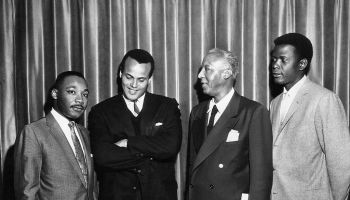Many people “understood” what Judge Sotomayor meant when she uttered her famous line, but Senator Graham understands why it wouldn’t be so
Of course, we knew what Judge Sonia Sotomayor was trying to get to when she gave her now-infamous remarks back in 2001. By mentioning that she believed that a “wise Latina woman” should be able to perform at a higher level from the bench than a White male counterpart without similar life experiences, she expressed the belief that more experiences should equate to a stronger connection between American law and everyday American life.
Of course, to some, that equals judicial empathy, a marker that is disdained by many that seek a different quality from their jurists for fear of judicial activism.
Senator Lindsey Graham (R-SC) spoke to something else: duplicity.
The senator from South Carolina is correct in saying that a comment from him that mirrored those remarks – just from the perspective of a White man – would have been enough to make national news (and probably kill his chances for re-election, especially if he were up against a minority candidate.) The comment would have been characterized as speaking towards racism, providing a hidden message to others about racial inferiority.
Sadly, as with the Sotomayor comment, it would only be about the parsing of words.
Take the reference to a Latina woman out of her comments or take the reference to a “White male” out of her statement, and that statement is fine – perhaps. There are still a lot of assumptions within the statement. For example, does a wise Latina woman always have the same socioeconomic experiences as the disadvantaged? If she is from the Bronx, perhaps, but not if she was born and raised in Fox Chapel, PA.
And that’s why she said it was a “bad idea.” And I agree – perhaps.
Judge Sotomayor’s desire to inspire students with her view was well-intended and needed in today’s America. However, the goal for minorities must always be inclusion and equality, not triumph over a racial segment. We are supposed to triumph over racism and past inequalities to achieve equality, not replace those negative constructs with rhetoric that believes that we are inherently better than a group of people – all over things being equal.
It is not about being like White people. It is about being equal to everyone as Americans. Diversity with equality equals effectiveness throughout America, from our social structures to our courts. Any sentiment that misses this point risks replacing one set of racial and ideological parsing for another. Our experiences through racism do make us stronger, but to be our strongest, we must always remember humbly that our experiences overcoming racism do not make us better than anyone else. They only help to make us better.
<span style='font-famil
















